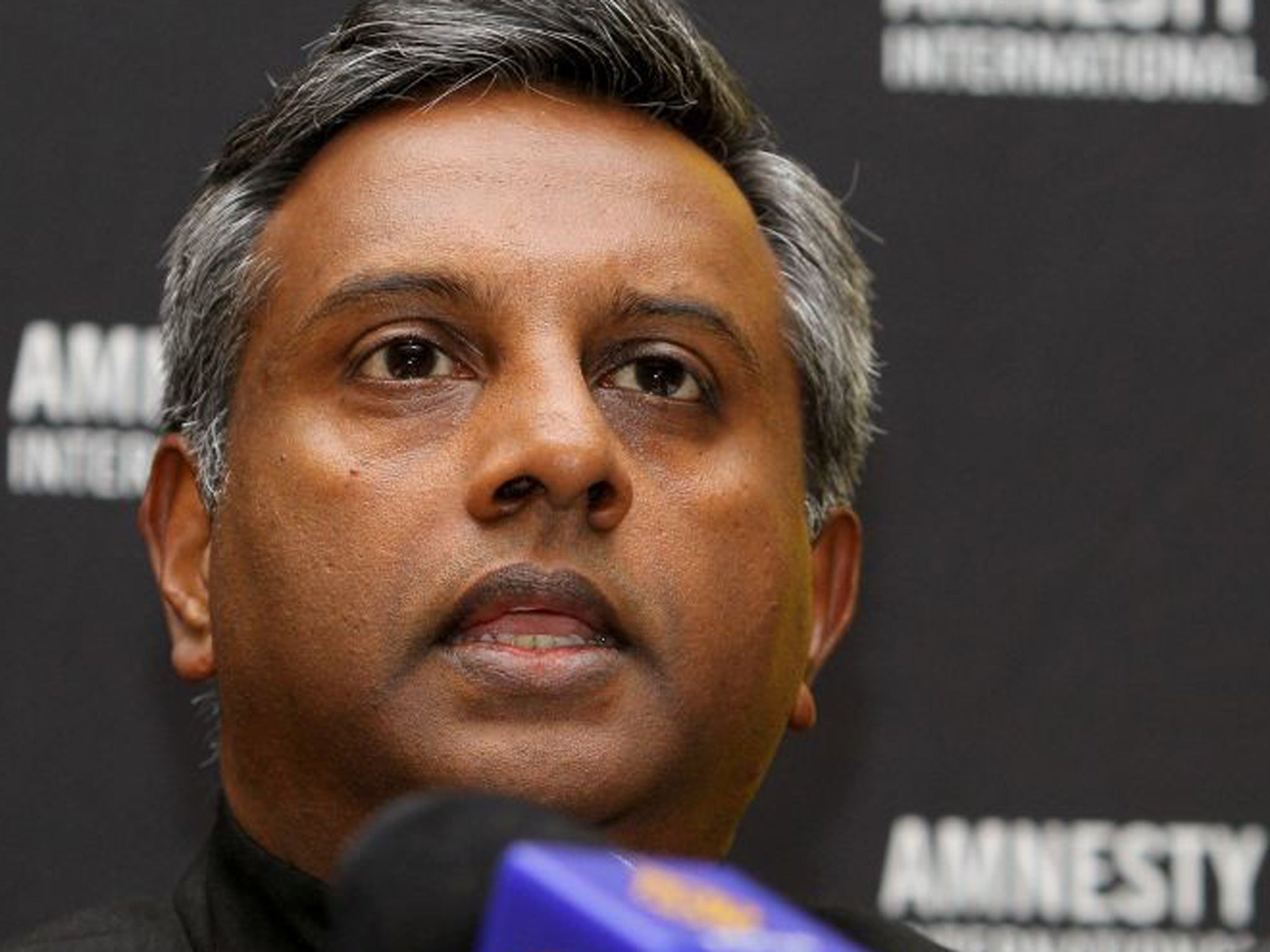'Politics before people': EU leaders have no credibility to pressure other nations on human rights, says Amnesty International head Salil Shetty
Syrian refugees are languishing unwelcome on its borders, migrants are dying at sea, and the Roma face unacceptable discrimination, he says

Your support helps us to tell the story
From reproductive rights to climate change to Big Tech, The Independent is on the ground when the story is developing. Whether it's investigating the financials of Elon Musk's pro-Trump PAC or producing our latest documentary, 'The A Word', which shines a light on the American women fighting for reproductive rights, we know how important it is to parse out the facts from the messaging.
At such a critical moment in US history, we need reporters on the ground. Your donation allows us to keep sending journalists to speak to both sides of the story.
The Independent is trusted by Americans across the entire political spectrum. And unlike many other quality news outlets, we choose not to lock Americans out of our reporting and analysis with paywalls. We believe quality journalism should be available to everyone, paid for by those who can afford it.
Your support makes all the difference.The European Union and its member states have no credibility to pressure other nations on human rights while Syrian refugees are languishing unwelcome on its borders, migrants are dying at sea, and the Roma face unacceptable discrimination, the head of Amnesty International said.
Speaking to The Independent at the start of a trip to Brussels to lobby EU leaders to do more, Salil Shetty said the bloc's historical reputation as a beacon of human rights was at risk unless countries including Britain stopped "putting politics before people" and tackled the abuses.
"First and foremost it's a question of doing the right thing, which is what human rights is about, but politically how do you actually preach to others if you don't practice it yourself?" said Mr Shetty, Secretary General of the global human rights watchdog since 2009.
"It's very paradoxical - that's the thing about both the EU and the UK in particular: these are places which one would expect to be champions of human rights," he added.
While European leaders including David Cameron have called for more humanitarian assistance to the Syrian people, the borders largely remain closed to the 2.3m Syrian refugees who are living in wretched conditions in camps in neighbouring countries.
In a letter published in The Independent on Saturday, 25 leading charities including Amnesty called on Britain to welcome more refugees fleeing the three-year-long conflict, as concerns mounted that Jordan, Turkey, Lebanon can no longer cope with the exodus.
So far, only 14,000 Syrians have been resettled in Europe, Mr Shetty said, with Britain yet to step forward and offer to house any new refugees under a UN scheme.
"It will give much more credibility to the Europeans on Geneva II (peace conference) if they actually take some concrete action," he said.
For Syrians who do make it to Europe, they suffer appalling conditions in detention and holding centres in countries like Greece and Bulgaria. Other pay with their lives. In the past year, hundreds of migrants and asylum-seekers have died at sea after embarking on dangerous journeys from Syria and other Middle Eastern and sub-Saharan nations. With no legal route to get to Europe, desperate people will continue to take risks, Mr Shetty said.
EU heads of state are due to discuss migration policy at a meeting in June, but so far the focus has been on reinforcing security and keeping people out of what Mr Shetty refers to as "fortress Europe".
Much of the reluctance of governments to step forward and accept more refugees stems from political concerns ahead of European parliament elections in May. Disillusionment at the economic crisis and austerity is expected to translate to a surge in support for populist and anti-immigration parties.
Discrimination and hate crimes are also increasing, with minorities - and in particular Roma - facing deep prejudice. Mr Shetty called on the European Union to use legal measures which are at its disposal to tackle any form of state discrimination, and urged member states not to pander to political extremes.
"It's at moments like this that we need leadership and statesmanship, it's not a matter of saying that's what a few people believe in," he said. "Europeans fundamentally have human rights as a core value - the EU institutions and the member states have to fall in line with that."
Join our commenting forum
Join thought-provoking conversations, follow other Independent readers and see their replies
Comments